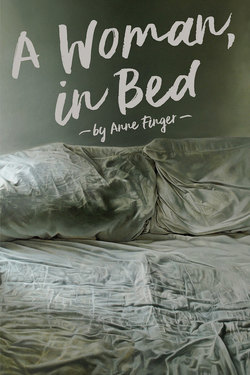Читать книгу A Woman, In Bed - Anne Finger - Страница 37
На сайте Литреса книга снята с продажи.
ОглавлениеWar
The Great War had, of course, ruptured his life. Jacques enlisted in the officer corps. He learned close-order drill, the attention which had to be paid to one’s uniform—clipping the errant thread that dangled from a buttonhole, polishing his boots—actually, his manservant did it for him—until they shone. And then the front lines, where he lived in what was more or less an open sewer.
Jacques spent only a few weeks in the trenches before being wounded in the leg, that injury of little long-run consequence save for the fact that it kept him in a military hospital and thereafter invalided, safe from greater harm. The pain from the wound had been terrible, but it had earned him shots of morphine. When he awoke in the field hospital twenty-odd kilometers from the front lines, he was a child again: the murmuring of the nurses melded into song, and the veils covering their hair made them seraphic. The smells of blood, camphor, and phenol reached him, as did the cries of men in pain—but on account of the morphine these did not arouse their customary associations. He babbled, as did the others around him.
When he had recovered sufficiently to be moved, he was sent to a glove factory remade into a rehabilitation hospital. The men who had lost limbs, noses, portions of jaws, the men whose lungs had been seared by mustard gas regarded Jacques with a mix of envy and contempt: he who would be left with nothing more than a scar, a preternaturally smooth and hairless expanse of skin. Having seen a living man blown to bits—up until the moment he had witnessed it, this turn of phrase had seemed just that, he could not have imagined that a man’s intestines could fly through the air in one direction, while his left leg hurled off in another—Jacques could no longer pretend to himself that he was still preparing for his life to begin. A sympathetic orderly brought him hastily-printed books, and he read poems which had been written at the front by poets now dead, the manuscript having been dispatched to the publisher by a grieving sister or fiancée. If he had died, he supposed it would have been Sala who would have sent a sheaf of his writings to a literary journal, with a note that read in part, “I wonder if you might look over these poems, which were returned to me along with the rest of his personal effects…” But as he had survived, he was not eligible for posthumous publication. The poems he himself mailed off were returned to him with brief notes expressing both admiration and regret, the latter outweighing the former.
He sank into a funk as the morphine was titrated down. He could bear the pain: he missed gazing at the world from a skewed perspective.
Shortly after he was discharged from the hospital, he saw a notice in the newspaper: the department of overseas affairs was seeking teachers for a variety of positions, including ones in Equatorial Guinea, Indochina, and Madagascar. It seemed a sign from the heavens.
